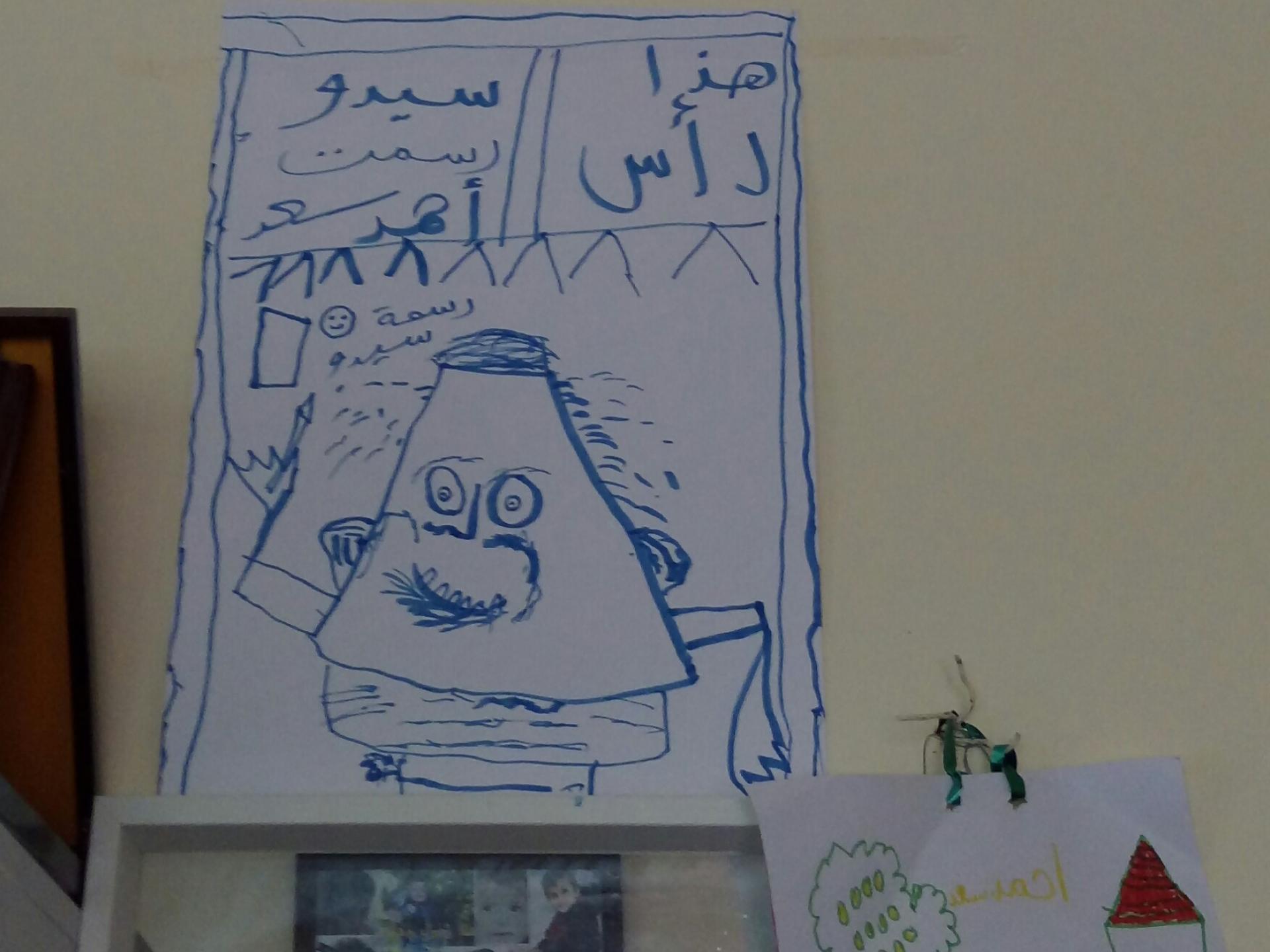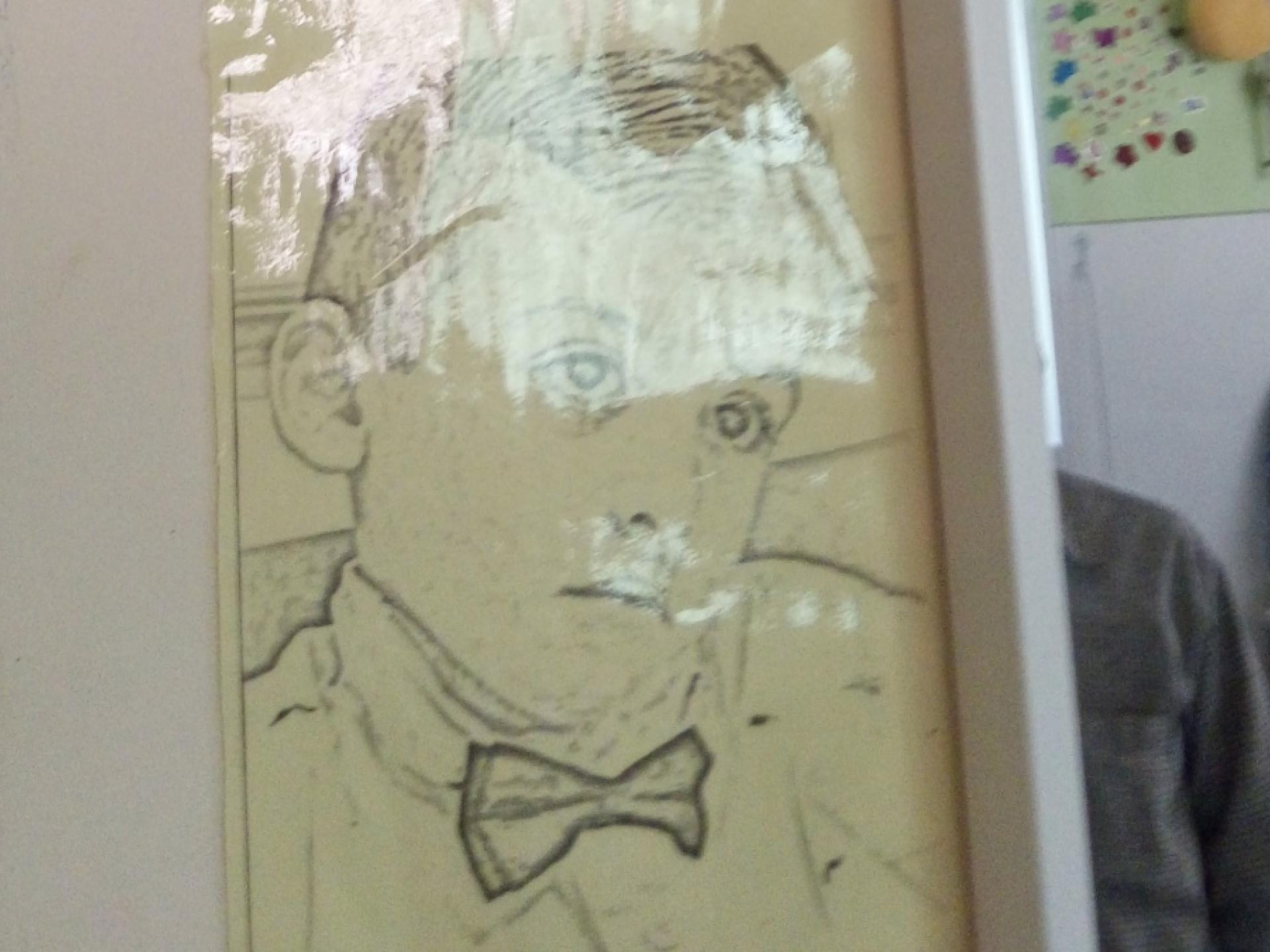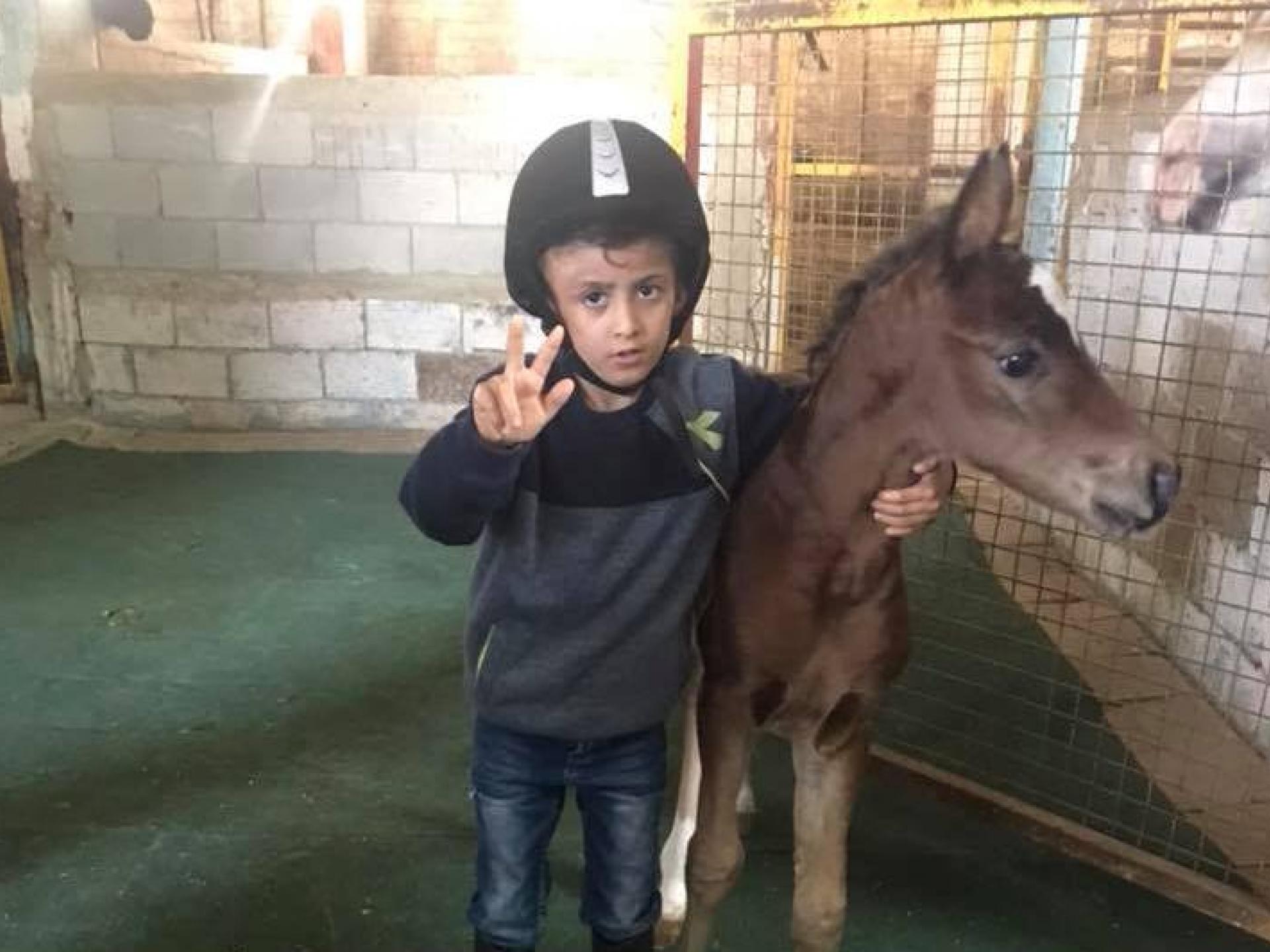A visit to Hussein Dawabsha in Duma
Hussein Dawabshe invited us to visit the family. We brought second-hand clothing and gifts.
We got on Highway 5 at approximately 10:05. Down the road, opposite the Barkan industrial zone, we saw how the area is expanding toward Sarta, the Palestinian village.
After passing the Za’tara junction, where there wasn’t much activity, we drove toward the Migdalim settlement and saw a new neighborhood under construction.
Later we saw no traffic on the road to Aqraba.
We reached Duma at 10:30.
Hussein Dawabshe earns a living from a grocery store he opened in the hamoula compound. He awaited us seated on a couch, happy we had come. Satira, his wife, joined us later. One could see that she was pleased with her routine.
We were sad to see the meager grocery, and our heart ached when Hussein showed us the house he’s building for one of his sons as he looked longingly at a floor tile he was holding, recalling the days he enjoyed working as a tile layer in Israel.
Annelien, Raya and I bought items at the grocery. We asked Hussein about the interesting rug we saw at his house and ordered one at a bargain price. Anyone who wishes may order from Hussein rugs brought from Hebron.
Ahmad is seven, in second grade. We looked at his drawings that hung in his room. We noticed in particular the drawing of his grandfather, Hussein, like a teakettle with a wide base, beside a drawing of a house and garden, flowers and a tree with thick roots.
Ahmed preserves the souvenirs of his trip to Spain two years ago, at Real Madrid’s invitation. A shirt signed by Christiano Renaldo, the star, and the other members of the team, and a soccer ball with Renaldo’s picture on it.
Portraits of Ahmed drawn by Jordanians hang on the wall. They’d been touched by the little boy’s story.


One can feel the influence of N., from Tira, Ahmed’s godmother, who had been devoted to him in the hospital and kept in touch with Ahmed and the family. Each week N. drives Ahmed, R., his cousin and his grandfather to Tira to learn English in the private school N’s sister directs in Tira. She also drives Ahmed around the Palestinian Authority to learn how to ride horses.
Ahmed has become aware of the importance of health, the environment and protecting living things. The sheepfold below the house provides products for the family. Ahmed doesn’t want any of the sheep slaughtered. He also wants his grandfather to stop smoking.
Ahmed returns from school at approximately 1 PM and is happy to see us. I gave him his present, a pair of binoculars. He grabbed them and said, in Hebrew, that what he sees is “big.”

The main issue has to do with the trial of those accused of setting fire to the Dawabshes’ home. Hussein said there’s been no change. The two defendants, Amiram ben Uliel and the other, who had been a minor, and who’d both pleaded guilty, still hadn’t been sentenced. Members of the Dawabshe family have no longer been permitted to enter Israel and be present at the dozens of court hearings because they haven’t been issued permits. While Ahmed had been hospitalized in Sheba Hospital they were granted permits to visit him, which also allowed them to attend the court sessions. Hussein says such delays are common when Jews are the defendants, but Palestinians are sentenced quickly, without delay.
On our way back at about 13:30 we noticed signs posted by settlers at the Za’tara and Hares junctions: “The nation supports sovereignty,” and “My identity is determined by Moshe Feiglin.”
IDF soldiers are present at the Hares junction.
